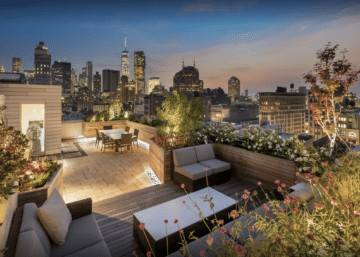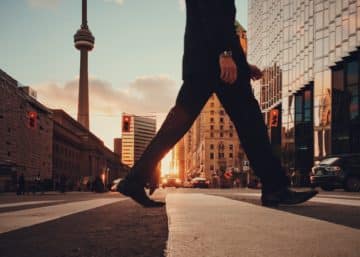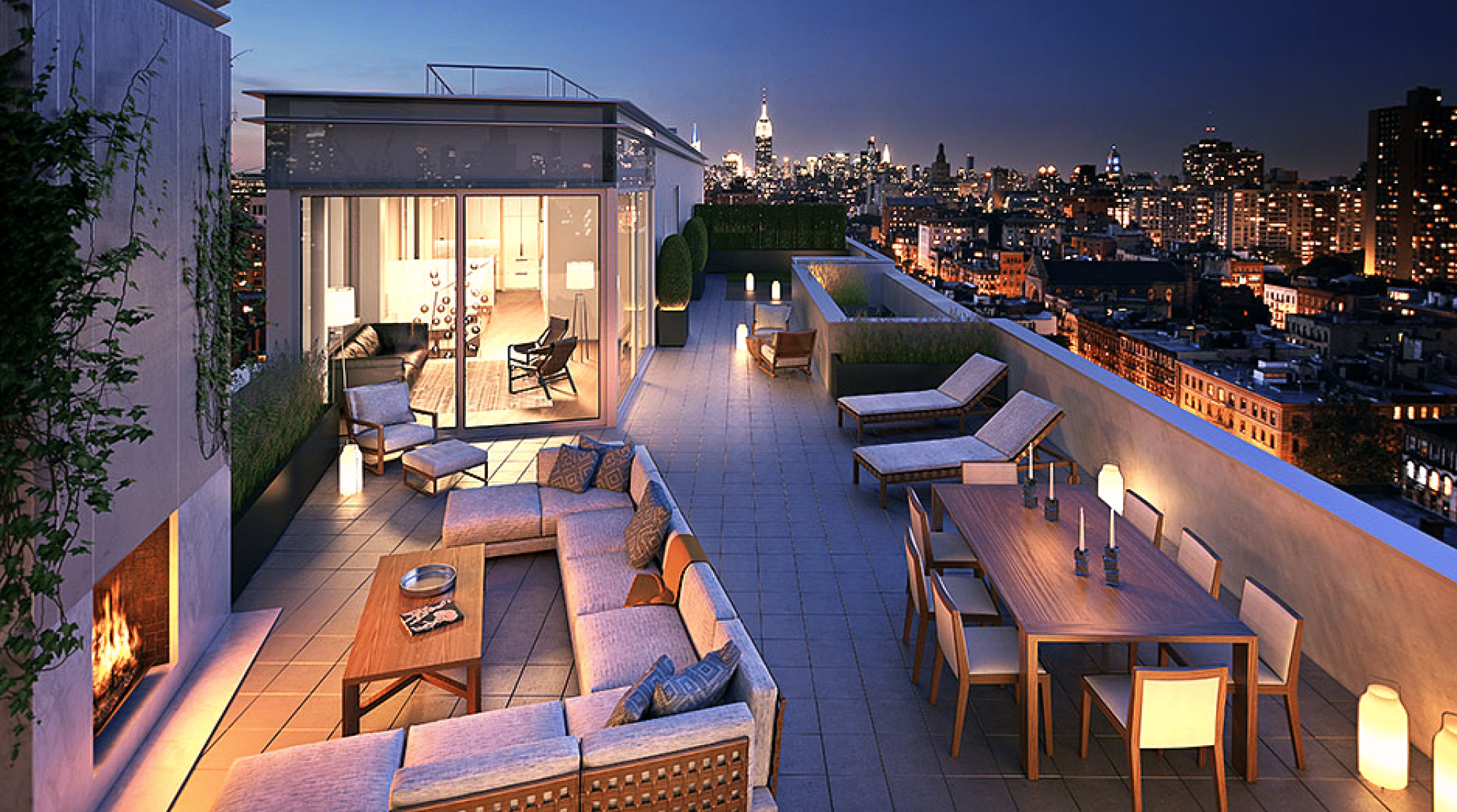
WHAT ARE THE FIRE CODE BASICS FOR GRILLS, BARBECUES, AND FIREPLACES ON TERRACES?
The NYC Fire Code regulates all flames, fireplaces, grills, and barbecues in all boroughs, even in private dwellings and non-apartment homes (this includes townhouses and freestanding homes).
Open fires—defined as fires for non-cooking purposes not exhausted through a flue (chimney)—are prohibited in New York. In addition, all new wood-burning fireplaces (both indoor and outdoor) were banned in 2014 as part of Bill de Blasio’s clean air initiative. Open wood-burning fires are now completely prohibited in all five boroughs. This doesn’t mean you can’t have a fireplace—it just means it can’t be a traditional, campfire-style wood-burning flame. Overall, fire pits and fire bowls are generally tricky to get approval for if not outright banned—steer clear.
Fire code for food-prep flames allows some lenience but is still tricky to navigate. Any grill or barbecue (regardless of fuel source) must be operated outdoors and at least 10 feet from any combustible surfaces (including combustible building surfaces, combustible roofs and combustible decks). This generally means that barbecues can’t be used on most balconies, terraces, and smaller rooftops due to size constraints. All grills and barbecues must also have close access to a fire extinguisher, 4-gallon pail of water or a garden hose at all times. Total grate area of any portable outdoor grill cannot exceed 10 square feet, and all grills and barbecues must also not be made for commercial usage.
WHAT HAPPENS IF I GET CAUGHT BREAKING THE LAW?
Buildings are often stricter in their grill/barbecue/fire code enforcement than the city is (for good reason), and newer buildings tend to be the strictest. Your building may heavily fine you, eject you, or even sue you. Some buildings and neighborhoods are laxers than others, but if the city catches you violating fire code regulations, fines can be heavy depending on the nature of the violation. First strikes from the city usually come with an order to simply discontinue the use of the offending fire accessory and sometimes a ticket, but continual violations are both dangerous and expensive—they can lead to fines of tens of thousands of dollars and ongoing litigation with neighbors, landlords, and the city.
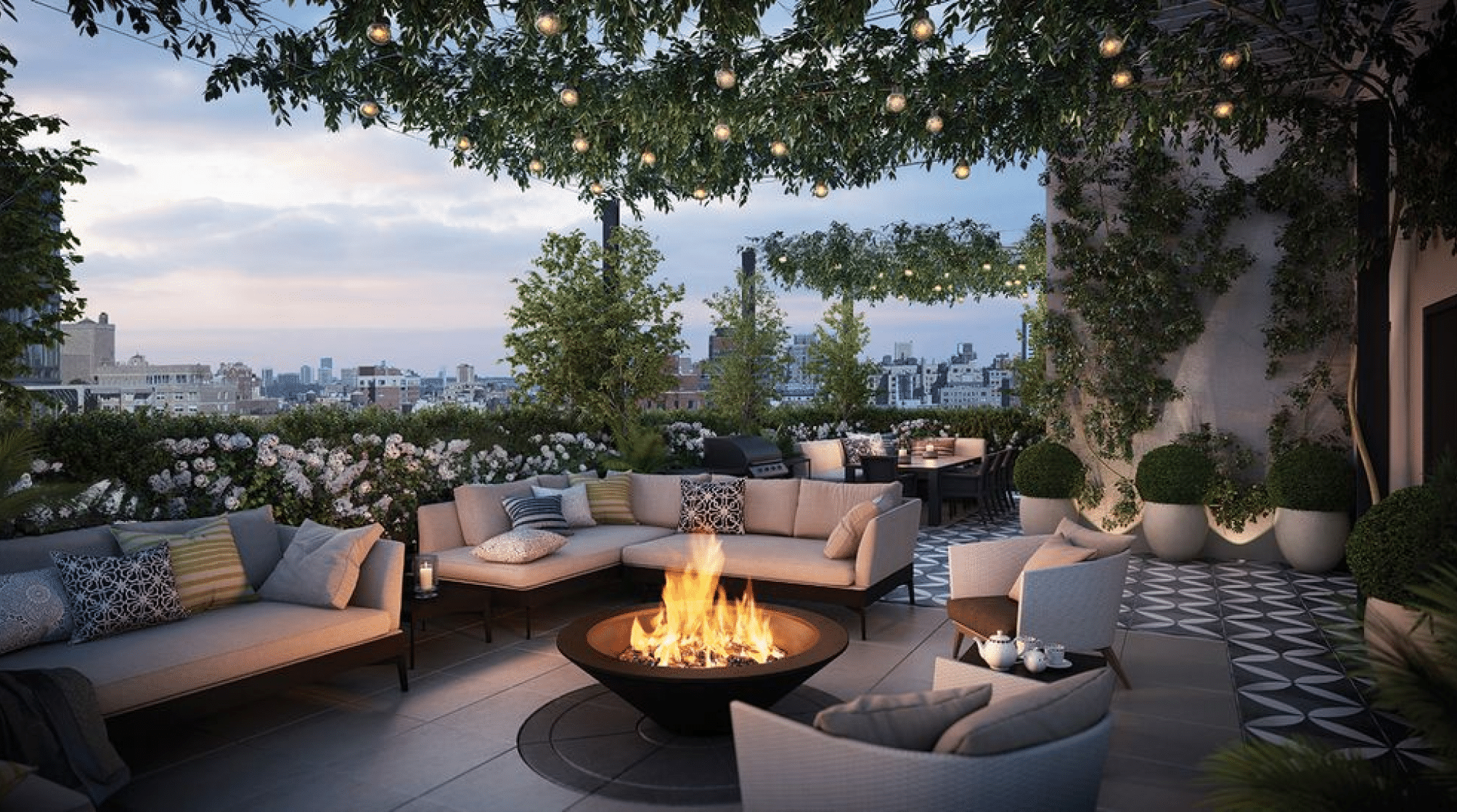
CAN I TRUST THAT THE FIRE ACCESSORIES I SEE IN NYC STORES ARE LEGAL TO USE?
Although many types of grills and outdoor fireplaces are banned or only approved in unique circumstances, the Fire Department does not have jurisdiction over retailers that sell them, so many retailers continue to offer illegal fire accessories without the knowledge that they’re illegal in the city (or, in some cases, in spite of that knowledge). Just because a fire accessory is offered for sale or installation within the city does not mean that accessory is necessarily legal.
WHAT ARE THE CITY’S REGULATIONS ON PORTABLE GRILLS AND BARBECUES ON MY TERRACE?
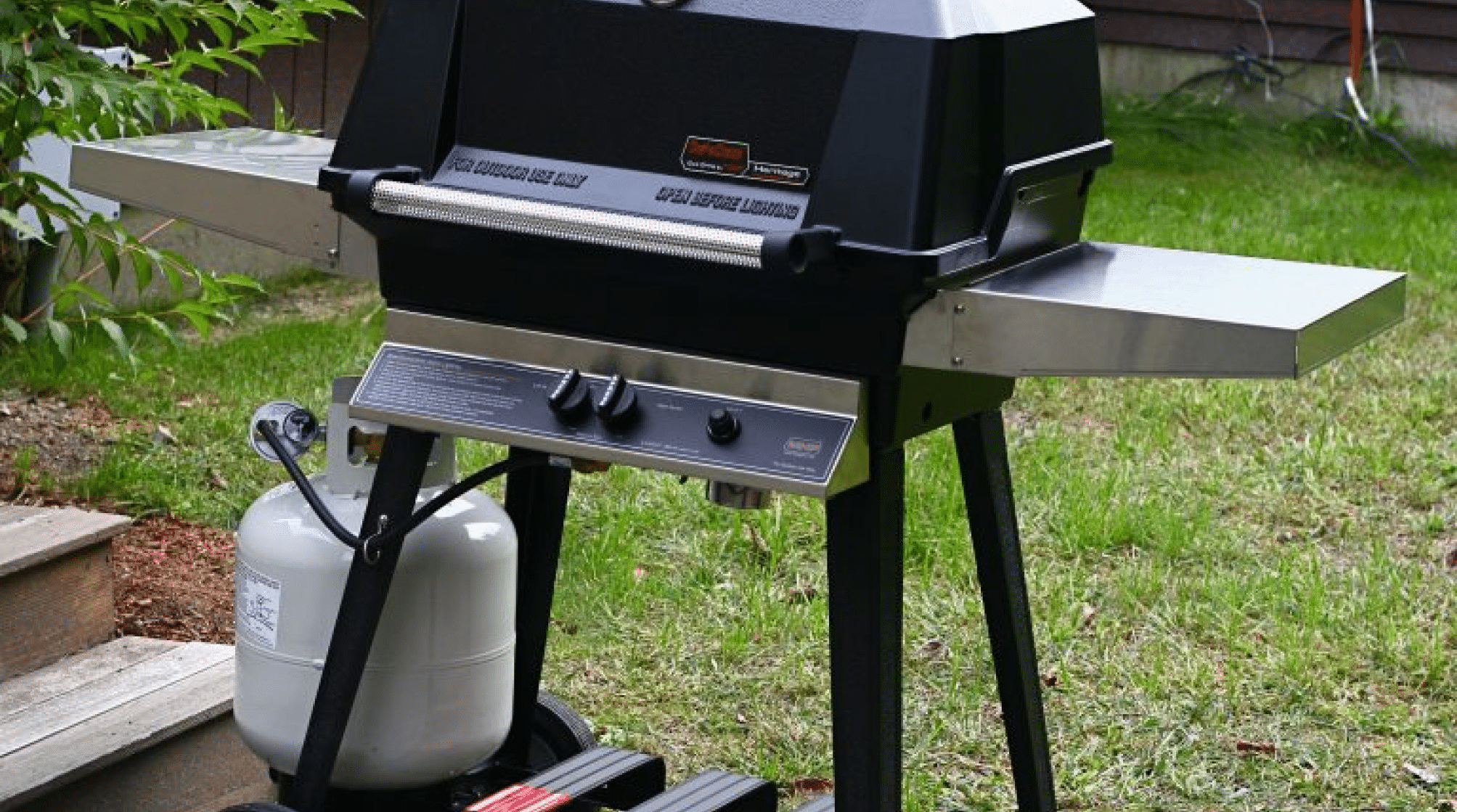
- PROPANE: Probably not OK—proceed with caution. For the most part, propane grills are considered dangerous and not allowed in apartment buildings. You can’t even store much extra propane in NYC apartments in most circumstances—the max amount any one terraced or balconied apartment is allowed to have at any given time is four 16.4-oz containers (the same tiny amount used for hand-held propane torches) and you can’t keep extra containers in basements or storage units. This is too little propane to operate many standard portable propane grills, and noncompliance with storage regulations can lead to a large fine if you’re caught. However, per Frank Dwyer, a spokesman from the Fire Department, standard-size propane barbecues ARE allowed in the back yards of one- to two-family dwellings (rather than apartment buildings), and smaller propane grills can even be allowed on terraces, balconies and rooftops in apartment buildings in some circumstances provided owners follow propane amount & storage guidelines.
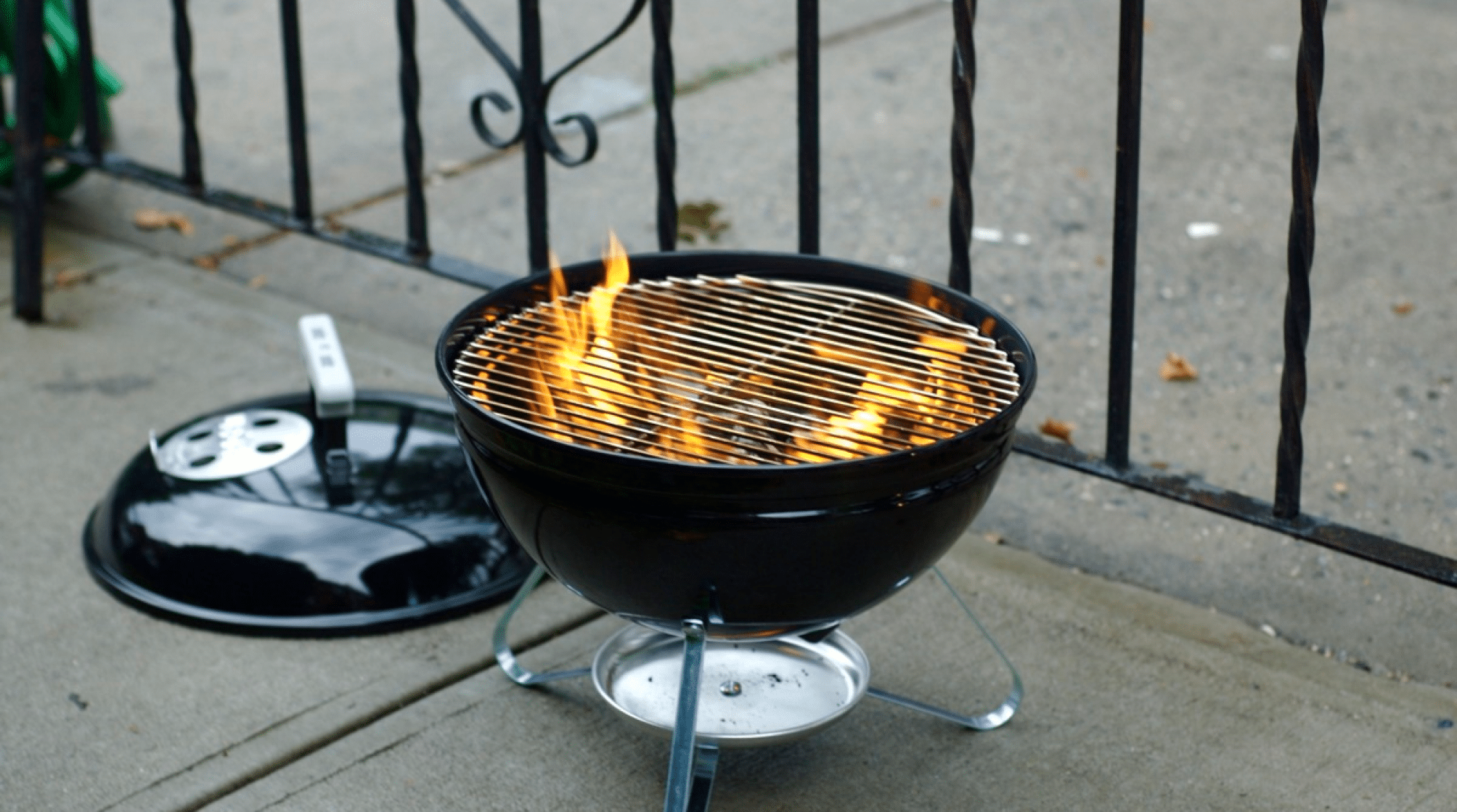
- CHARCOAL: Maybe OK, but check with your building. Portable charcoal grills are legal to use in backyards or some courtyards as long as they’re 10 feet away from all combustible materials. Per Dwyer, they are also legal on terraces, balconies, and rooftops, but most apartment buildings have their own rules restricting charcoal grills and are very strict about enforcement.
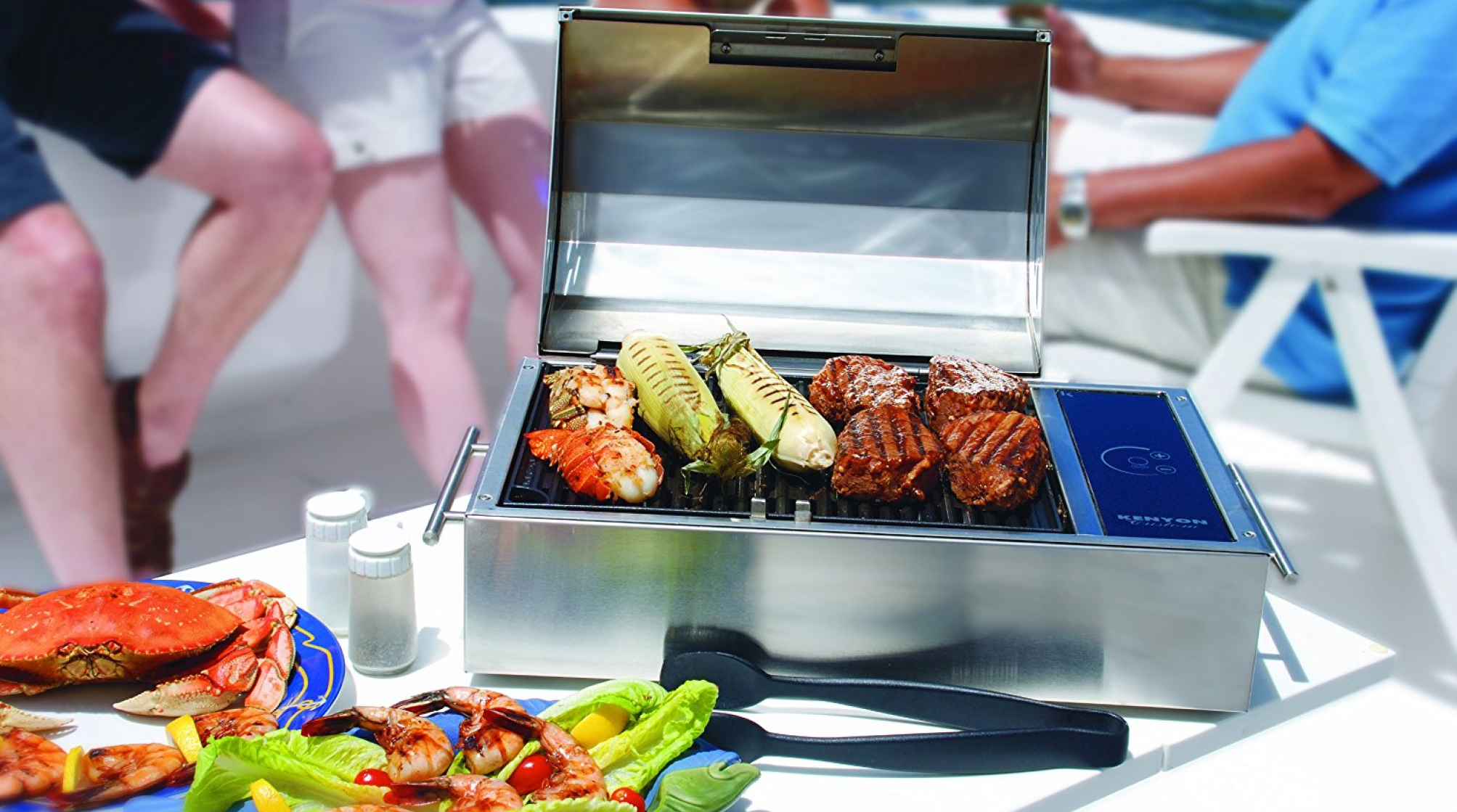
- ELECTRIC: Probably OK, but check with your building. Electric grills are legal to use on terraces, balconies and in backyards and courtyards as long as they meet the 10-foot requirement and are allowed by building boards/management. However, the Fire Dep’t recommends having a DOB-licensed electrician inspect your outlets to ensure they can handle the current. The biggest risk in electric grills comes from cooking grease dripping onto the exposed electric heating elements and starting a fire, so (as always) be sure to have a fire extinguisher close by.
WHAT ARE THE CITY’S REGULATIONS ON FIREPLACES AND NON-PORTABLE GRILLS?
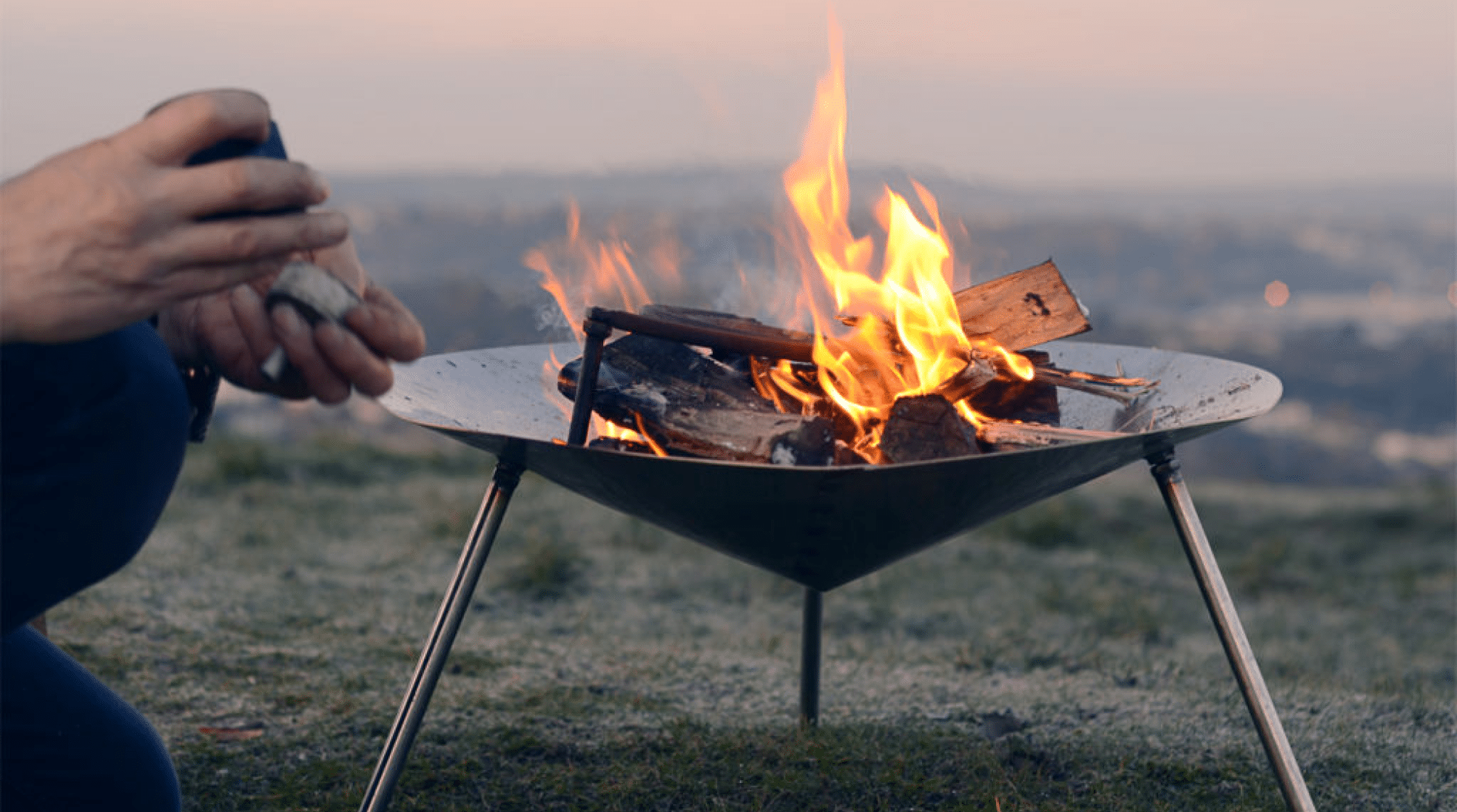
This enchanting Fire Wok is lovely for camping, but not safe for New York City terraces.
SCREENED OR UNSCREENED FIRE BOWLS: Not OK. Avoid them. These screened wok-like metal pits are not allowed if they burn wood or other solid fuel, even if they have enclosing screens on top. Burning wood or solid fuel designates these as open fires per the NYC Fire Code, which are completely prohibited. These fire pits aren’t meant for cooking, and remember—non-cooking fire is only permitted if it is exhausted through a flue. It’s important not to confuse these fire woks with barbecue grills that come in similar shapes—barbecues that burn charcoal, propane or piped natural gas are exceptions because they generate heat and controlled flames and are used for cooking through a metal grill, rather than the “uncontrolled fire” of illegal wood-burning fire bowls and fire pits.
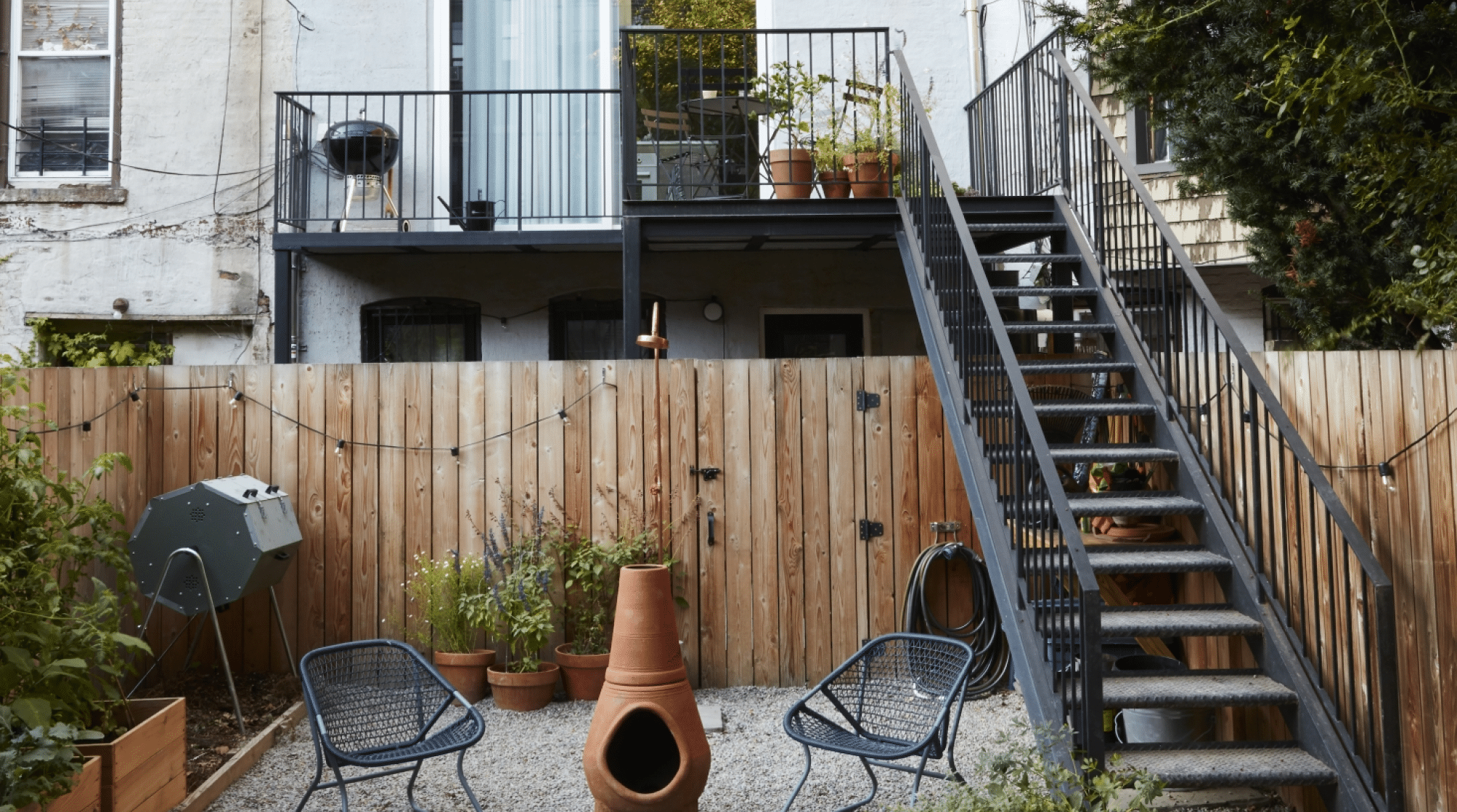
CHIMINEAS: Probably not OK—proceed with caution. Although there’s been some debate about chimineas recently, Fire Dep’t Spokesman Jim Long went on the record to say chimineas are “strictly prohibited and illegal to use in the City of New York.” The fire accessories that light chimineas—wood, charcoal and sometimes gas—are all considered part of open fires. Again, chimineas are not controlled flames meant for cooking, which restricts their usage.
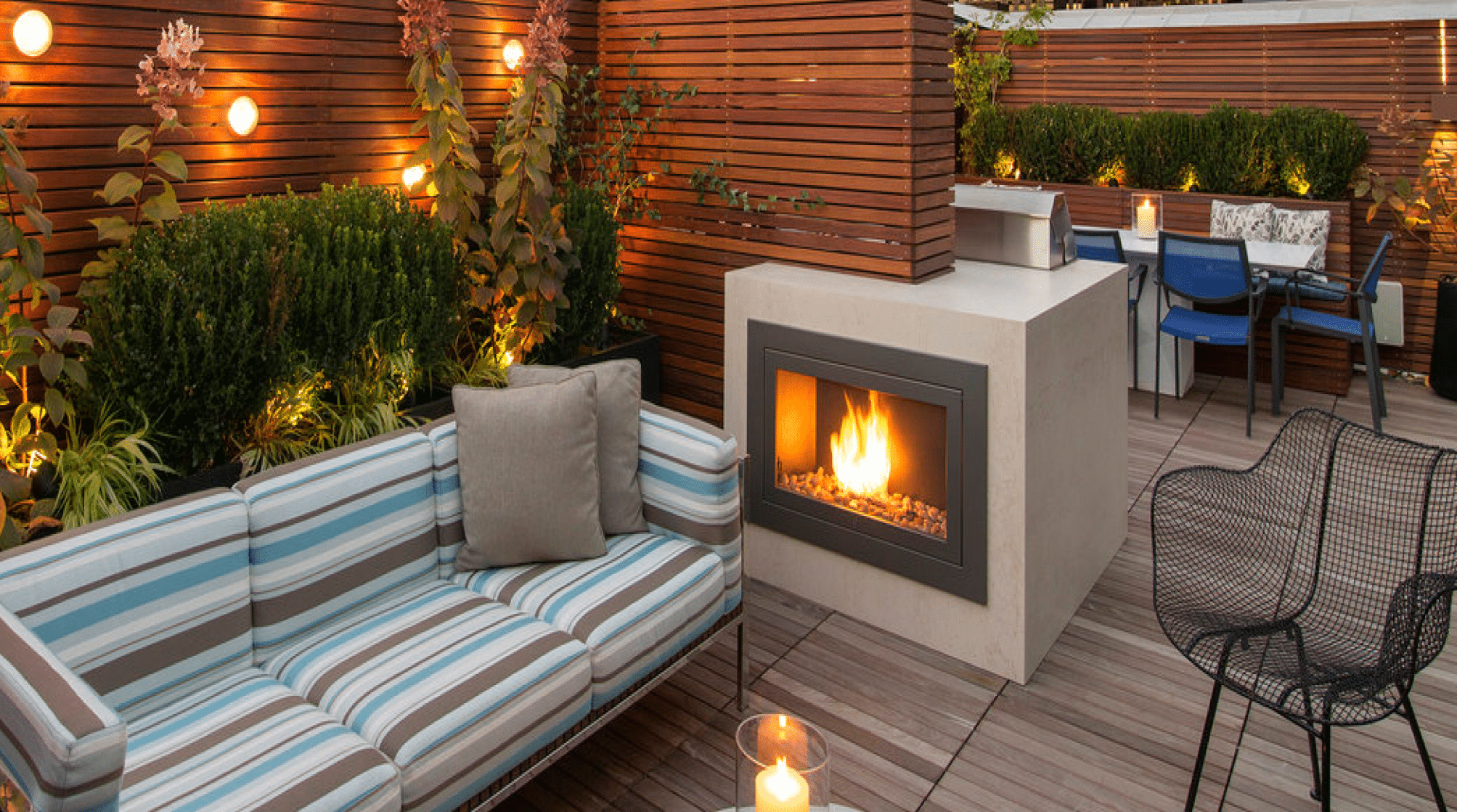
A ventless fireplace on a Manhattan terrace by Hearth Cabinet. Project by Michael Wood Interiors.
VENTLESS FIREPLACES: OK to use. Only one brand (Hearth Cabinet) of ventless fireplace has been unequivocally approved by the city of New York for use in all settings (indoor and outdoor). The Hearth Cabinet is a self-contained unit that doesn’t burn gas, wood or liquid fuel—instead, it uses a “safety gel cartridge” to create flames enclosed by a screen. The NYC fire dep’t has classified this as a “decorative piece of furniture that looks like a fireplace,” rather than a fireplace/open fire, and as such, it is widely legal. Other ventless fireplaces are likely to be approved as long as they’re similar in usage and design.
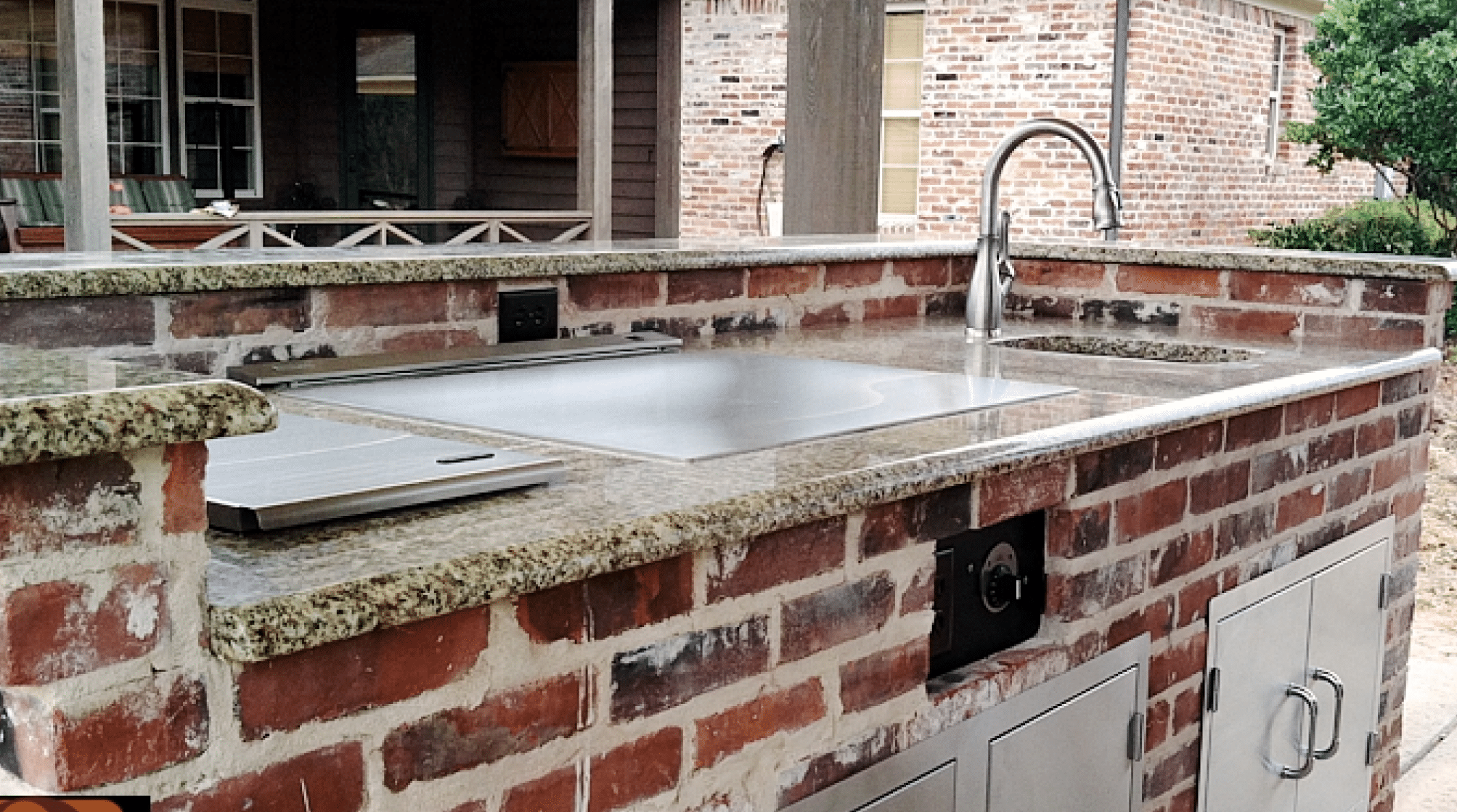
EMBEDDED ELECTRIC COOKING SURFACES: OK to use.These are not considered grills or barbecues because they are not open-grate cooking surfaces suspended over heating elements. As long as they are not commercial grade, these hot cooktop surfaces (both portable and permanent hotplate-like devices) are completely legal for all indoor and outdoor use.
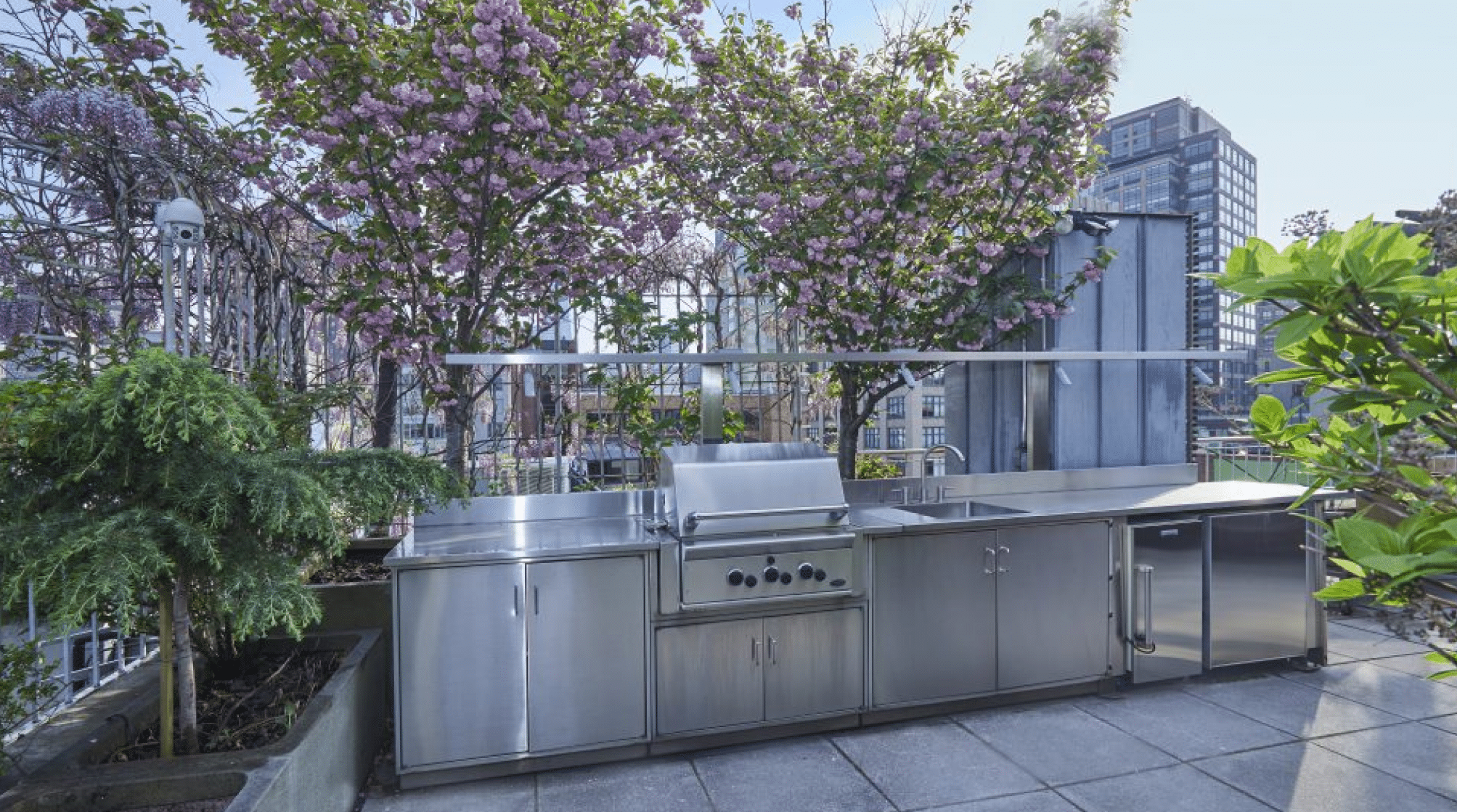
A chef-grade natural gas grill at one of TTE’s listings.
NATURAL GAS GRILLS: Probably OK, but check with your building. Natural gas grills are OK as long as they’re made for residential (not commercial) cooking use, 10 feet from any combustible material, and gas lines have been installed by a NYC Master Plumber. This is the safest option for rooftop and terrace grills. As always, your building’s individual rules and regulations trump New York City’s.
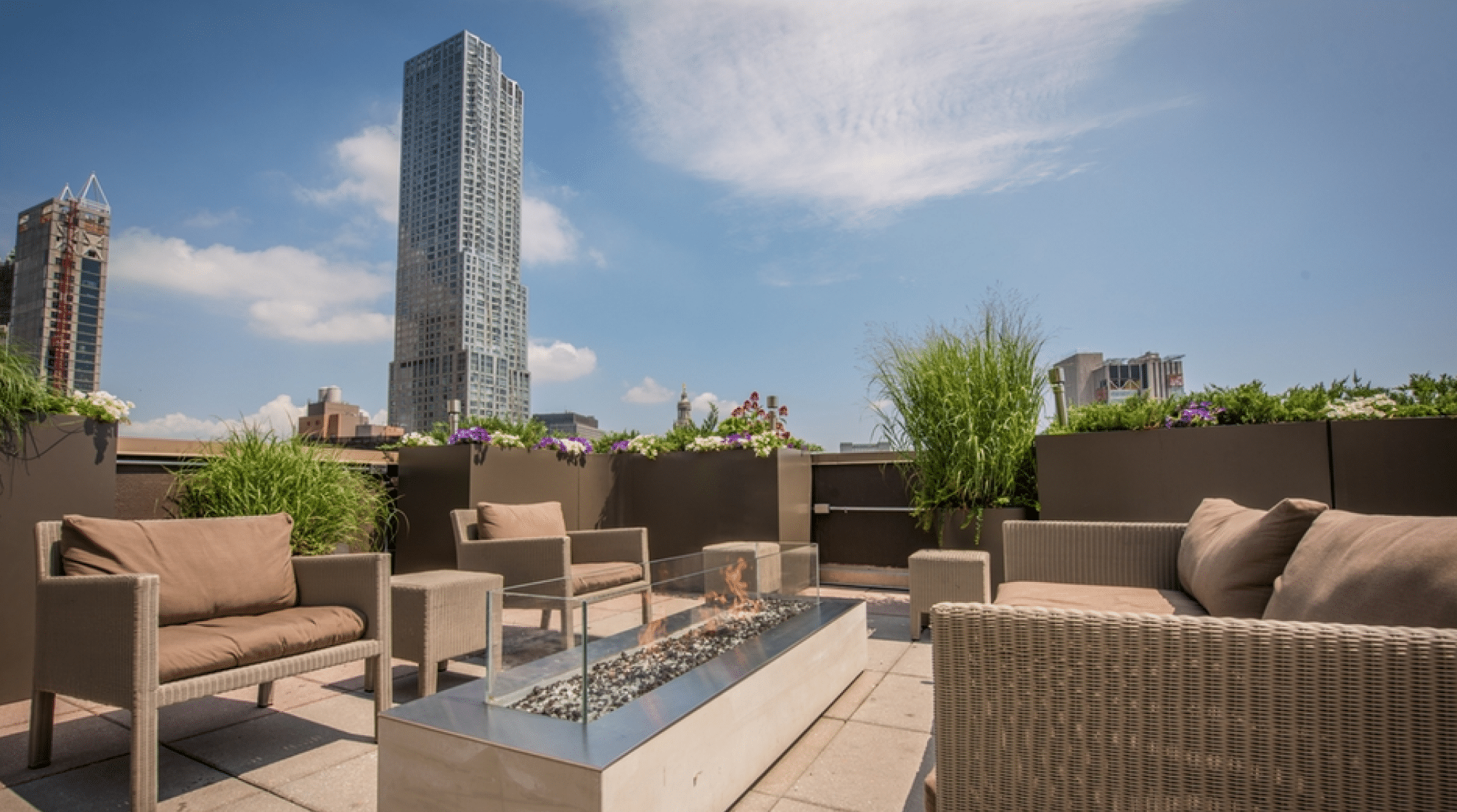
OUTDOOR GAS FIREPLACES: Probably OK, but check with your building. Per NYC Buildings Bulletin 2015-016, outdoor gas fireplaces are considered “decorative gas appliances” and must actually only be 5 feet away from any building or combustible structure, rather than the usual 10 feet. Like natural gas grills, these decorative gas appliances must be installed in compliance with NYC construction codes, must have a fire extinguisher close by, and (if the fireplace has “open flames”) must have an FDNY permit for use.
Overall, the fire code of New York City is complex, changes often, and can be interpreted in different and even conflicting ways by the fire department, so it’s best to check with local fire departments or a fire department representative if there are outstanding questions or concerns. As always, we’re not lawyers and this isn’t legal advice—it’s always best to consult with your building, fire department and attorney before making any changes or additions to your terrace involving grills, barbecues and fire accessories.
Does all of this sound too complex to worry about? Here’s a list of pre-approved grilling spaces in NYC parks.
Please feel free to contact us regarding all New York City terrace real estate questions.

